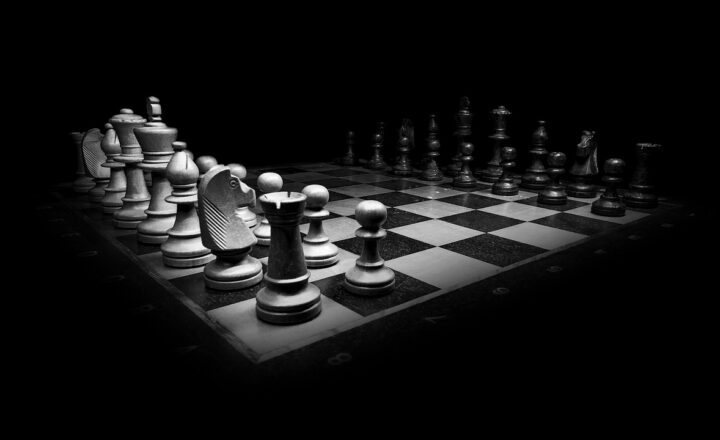The Art of Memory: How Humans Remember and Forget Over Time
November 16, 2024

Memory is a complex cognitive function that enables individuals to store, retain, and subsequently recall information from previous experiences. As humans, our memories shape our understanding of the world, influence our decisions, and contribute significantly to our identity. The dual nature of memory—comprising both the ability to remember and the inevitability of forgetting—raises essential questions about how we process information throughout life.
1. The Science Behind Memory: How It Works
Memory can be broadly categorized into three stages: encoding, storage, and retrieval.
– Encoding: This is the first step in memory formation, where we transform sensory input into a form that can be processed by the brain. Effective encoding often depends on attention and the significance of the information. For instance, vivid experiences or emotionally charged events tend to be encoded more effectively than mundane details.
– Storage: After encoding, the information is stored in various types of memory. Human memory is typically divided into:
– Sensory Memory: This holds sensory information for a fleeting moment; visual stimuli for up to half a second, auditory stimuli can last a few seconds.
– Short-term Memory (STM): Also known as working memory, it temporarily holds a limited amount of information for a short period (around 20 to 30 seconds).
– Long-term Memory (LTM): This can hold vast amounts of information for extended periods, ranging from days to a lifetime. Information in long-term memory can be declarative (facts and events) or non-declarative (skills and tasks).
– Retrieval: This is the process of accessing stored information. Retrieval cues—associations and triggers that help bring memories to consciousness—are crucial during this stage. Strong cues generally lead to successful retrieval, while weak or absent cues may result in forgetting.
2. Types of Memory: Understanding What We Remember
Memory can be classified into various forms that reflect different aspects of our experiences. Some of these include:
– Episodic Memory: This involves recalling specific events or experiences from our past, replete with context such as time and place. For example, remembering your first day at school includes not just the fact of it, but also the feelings and atmosphere.
– Semantic Memory: This is the storehouse for general knowledge and facts, independent of personal experience. Recognizing that Paris is the capital of France is semantic knowledge, which doesn’t involve a personal memory of learning that fact.
– Procedural Memory: This type deals with routine procedures and skills learned over time, such as riding a bike or typing on a keyboard. It operates without conscious thought and is often challenging to verbalize.
Understanding these types of memory can assist in tailoring learning and retention strategies, making them more effective for individuals seeking to enhance their memory.
3. Factors Influencing Memory Retention
Numerous factors can significantly impact how well we remember information:
– Repetition: Repeated exposure to information enhances retention. Techniques like spaced repetition utilize intervals of increasing length between reviews to strengthen memory.
– Emotion: Emotional experiences are often remembered more vividly than neutral ones due to the brain regions involved in emotion (such as the amygdala) being closely linked to memory processing areas.
– Association: Linking new information to existing knowledge fosters better retention. Creating mental images or connecting concepts can facilitate the encoding process.
– Contextual Cues: The environment in which information is learned can serve as a retrieval cue. Studying in a similar setting to where you will be tested can improve recall.
Exploring these factors can reveal practical methods to enhance memory for students, professionals, and lifelong learners alike.
4. The Role of Forgetting: Why Do We Forget?
Interestingly, forgetting is a natural part of the memory process. Here’s why it occurs:
– Decay Theory: This theory suggests that memory traces weaken over time if not activated, leading to forgetting. This is especially prevalent in short-term memory, where information fades after a brief period of inactivity.
– Interference Theory: There are two types of interference that affect memory retrieval:
– Proactive Interference: When older memories hinder the recall of newer information.
– Retroactive Interference: When new information disrupts the retrieval of older memories.
– Motivated Forgetting: This occurs when individuals consciously or unconsciously inhibit the retrieval of painful or unwanted memories, often to minimize emotional distress.
Understanding these mechanisms emphasizes the adaptive purpose of forgetting, enabling individuals to declutter their cognitive space and prioritize relevant information.
5. Enhancing Memory: Techniques and Strategies
With an understanding of memory’s nature, many techniques can help enhance retention and recall:
– Mnemonic Devices: These memory aids help encode information through simple techniques, such as acronyms (e.g., using the first letter of each item to form a word).
– Chunking: Breaking down large amounts of information into smaller, manageable units fosters easier remembrance. For example, remembering the phone number 123-456-7890 as three separate chunks is easier than recalling ten digits at once.
– Visualization: Creating vivid mental images alongside the material to be remembered can significantly increase retention.
– Mindfulness and Focus: Practicing mindfulness and focusing without distractions can improve the encoding stage and enhance overall memory performance.
Employing these strategies can lead to more efficient learning and improved memory longevity over time.
6. The Future of Memory Research
As technology continues to advance, the field of memory research is evolving with exciting possibilities. From understanding how artificial intelligence can augment human memory to exploring the neural underpinnings of memory consolidation, the future holds vast potential for discoveries. Research is also delving into ways to enhance cognitive function in aging populations, provide strategies for clinical memory impairment, and leverage technology for memory aids.
As scientists explore the mysteries of memory, the implications for education, mental health, and cognitive enhancement are profound, potentially transforming how we approach learning and memory challenges in the future.
Conclusion
Memory stands as a pillar of human experience and identity. By understanding the mechanisms behind how we remember and forget, individuals can leverage this knowledge to improve their memory performance and cognitive abilities. Whether through optimizing techniques for learning, applying practical approaches to memory retention, or embracing ongoing research in the field, the art of memory invites everyone to enrich their lives with the power of remembering.
In a fast-paced world where information overload is common, mastering memory can help individuals navigate their lives with more clarity, purpose, and connection to their personal histories.








